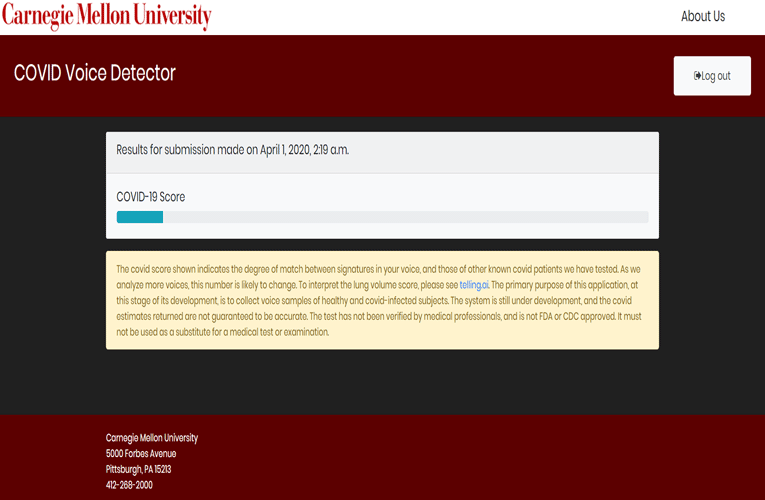
Amidst the global pandemic on coronavirus outbreak, researchers and scientists around the world have been working towards finding affordable and accurate solutions to help people heave a sigh of relief. A team of researchers at Carnegie Mellon University and other institutions have come up with an early version of an app that can help detect COVID-19 by analyzing voice.
The COVID Voice Detector can help users analyze their voice for signs of infection. The score that the app shows is an indicator of how much the signatures in your voice match those of other COVID patients whose voices have also been tested. The researchers say that this is not medical advice and the sole objective of coming up with such an app is to collect large numbers of voice recordings that could be used to refine the algorithm into something that the medical community is confident about.
Using a smartphone or a computer with a microphone, the app can help detect the COVID-19 infected people. All users have to do is, cough several times and record several vowel sounds, and recite the alphabet too. Thereafter, a score is provided which is expressed as a download-style progress bar, representing how likely the algorithm believes it is that the user has COVID-19. The cough of a COVID patient is very distinctive and it affects the lungs to such an extent that breathing patterns and other vital parameters are affected which leads to COVID affected person having very strong signatures in voice.
As of now, the app is work in progress and comes with a hefty disclaimer that it’s “not a diagnostic system,” not approved by the FDA or CDC, and shouldn’t be used as a substitute for a medical test or examination. Besides, the app's results are preliminary and untested at present. It's difficult to quantify the current version of the app’s accuracy and researchers are reiterating that its output shouldn’t be treated as medical advice. Due to a lack of verified test instances, the app’s accuracy can’t be tested. The team has consulted with colleagues in the medical research community considering how to fine-tune the app’s sensitivity.

